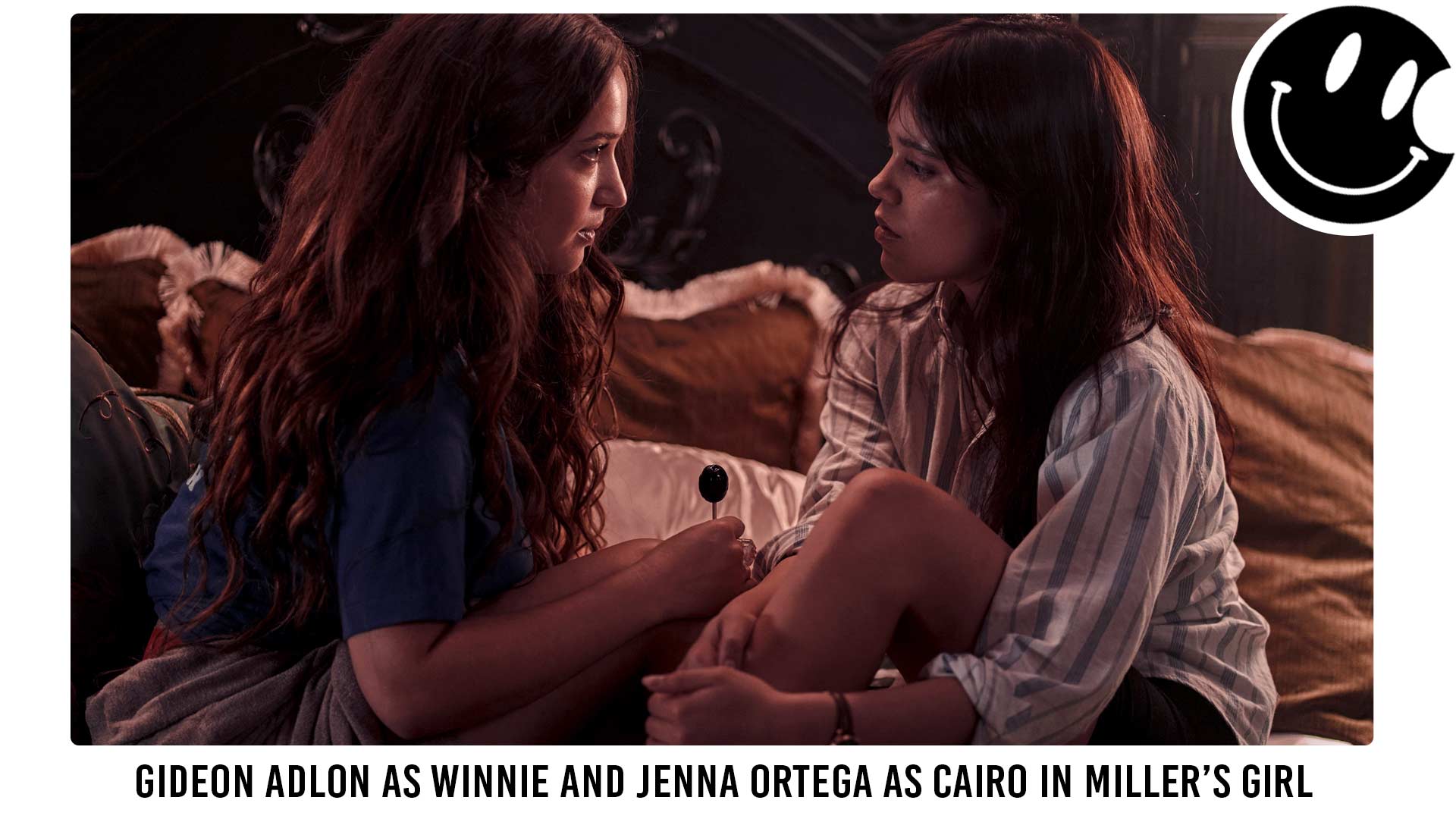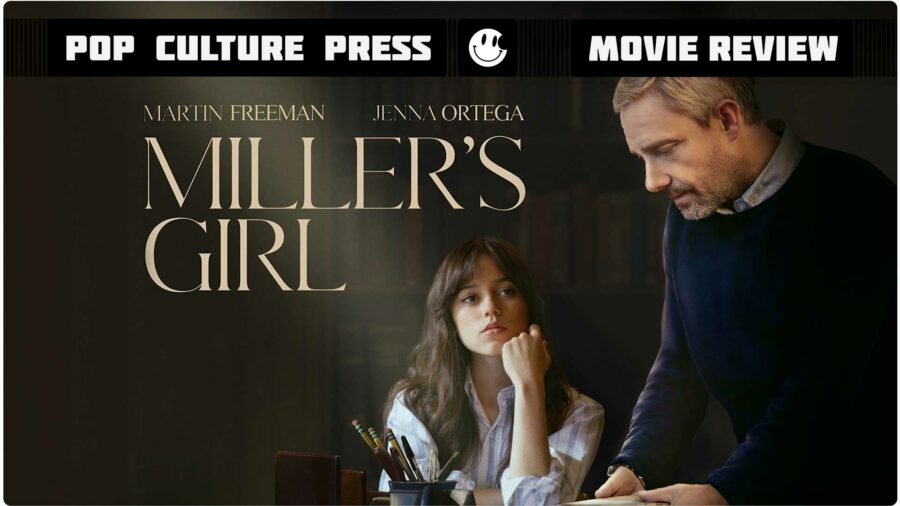Review of Miller’s Girl
Most of us know what it’s like to be “18 and entirely unremarkable.” The solution to this predicament being an emotionally-driven attempt to seduce a teacher poisoned by mediocrity however, is probably not as familiar to many.
The student-teacher relationship has been portrayed, fetishized, and critiqued countless times and Jade Halley Bartlett’s directorial debut Miller’s Girl brings nothing new nor riveting to the table. Even with a rich setting and inspired performances, the film fails to ignite a conversation around its subject matter that other films haven’t already initiated with much more poignance and nuance.
The film seeks to dissect the troubled and preoccupied minds of writers Cairo Sweet (Jenna Ortega) and Jonathan Miller (Martin Freeman), more specifically the facets of their relationship to each other. The student-teacher power imbalance is primarily disregarded as the two connect over their admiration of controversial writer Henry Miller, fostering a friendship beyond the classroom.
But when Mr. Miller’s fascination with Cairo and her talent prompts him to permit her to write her midterm short story in the style of their adored author; she delivers him a piece that, like ink on the page, darkens their connection. Intense emotional hostility ensues leaving both characters and their friends of family left in their path of desolation.
Ortega’s handling of Cairo is undoubtedly a large contributor to any true depth this film holds. Her subtle smiles, controlled tears, and vicious glares show a relentless commitment to character while the script is too focused on flowery dialogue to diligently craft its story.

Every key player offers a skin-deep portrayal of the quintessential traits of archetypal Americana. The actors don’t perpetuate this but rather the script and its limited view of these characters’ motives and desires. The beginning of the film sees Cairo narrating about the brutality of wanting and longing but the characters don’t exhibit any of that in its purest forms.
Characters in Miller’s Girl simply exist as one-dimensional paper thin cutouts of genuine human beings. Even though Ortega’s performance does a decent job of bringing a realness to Cairo, the film’s writing and pacing stifles her and doesn’t dig deep enough into her psyche.
Freeman also plays the pathetic Mr. Miller with a clear understanding of his character, but teeters on the edge of fully submerging himself in the madness and disillusionment. His conversations with his wife, played by Dagmara Dominczyk vanquishes tension in most cases despite vying for the opposite effect.
One particular scene between the disenchanted couple starts to reveal potentially interesting undertones of the weaponization and fetishization of young female sexuality but devolves into another lifeless argument.
Another scene between Ortega and her co-star Gideon Adlon who stars as Cairo’s flirty, sexually tempestuous friend Winnie falls somewhere between gratuitous, erotic, viewer bait, and actual depiction of teenage sexual experimentation. The aftermath of this scene pertaining to the later contexts in the film blurs its intention even more.
Intention is perhaps the most misguided element of Miller’s Girl from its intention of trepidatiously exploring “complex themes” as its trailer warned of to its character’s intentions and ultimate goals. It might be fair to say that everyone in the film is motivated by selfish, impulsive emotion and that’s fitting for the story, but the lack of direction and development of these feelings sabotages engagement and breeds boredom.
As a film about the multiplicities of creative writing and the relationships that inspire such thought-provoking stories, Miller’s Girl yearns to position itself as an enveloping narrative about seduction, desire, and the persisting fear of being unordinary. Instead, it unfolds in a rushed, depthless fashion that many reviewers have compared to tame, thoughtless fanfiction.


